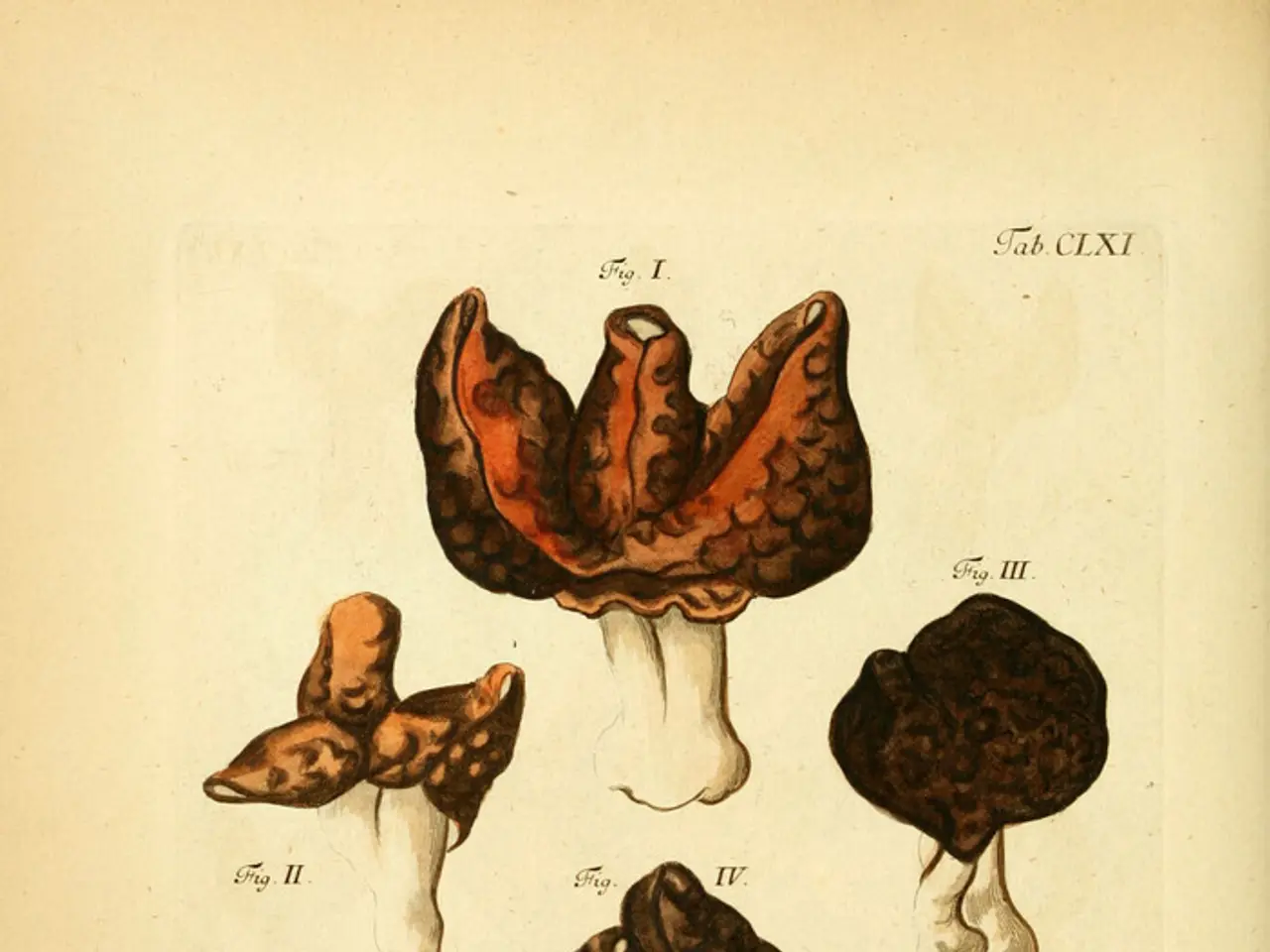"Mushroom Foraging Safety": Ensuring Your Life Isn't Endangered while Gathering Mushrooms
In the Omsk region, an abundance of edible wild mushrooms, berries, fruits, and vegetables awaits foragers, but it's essential to approach them with caution. To ensure a safe and enjoyable foraging experience, follow these key guidelines.
When it comes to wild mushrooms, it's crucial to positively identify them as safe before picking. Many edible mushrooms have toxic look-alikes, so if uncertain, consult an expert or a specialized identification guide. Avoid mushrooms from polluted areas, such as those near roads or industrial zones, as they can absorb toxins like heavy metals. Myths and folk tests, like the color change when cooked, should not be relied upon as they are unreliable.
Store mushrooms in breathable containers, like baskets, to prevent moisture buildup and contamination. When trying a new wild mushroom for the first time, eat only a small amount to monitor any adverse reactions. If mushroom poisoning is suspected, seek immediate medical attention or contact poison control.
For wild berries, fruits, and vegetables, learn to correctly identify edible species. Some toxic species closely resemble edible ones, so when in doubt, do not pick or eat them. Pick ripe berries by gently rolling your thumb over clusters so that ripe berries fall off easily. Always wash all produce thoroughly under running water to remove dirt and bacteria. Even if you peel fruits like bananas or oranges, wash them first to prevent transferring bacteria from peel to flesh during cutting.
Avoid consuming any wild plant that grows near polluted or potentially contaminated sites. Properly store gathered edible plants to avoid spoilage, and avoid foods that look suspicious, damaged, or past their prime. Wash pre-packaged and pre-washed salad greens as bacteria can multiply during storage.
General food safety practices also apply when foraging. Thoroughly wash all produce, and avoid consuming the rinds of watermelons and melons to avoid eating pesticides, nitrates, and other harmful substances that accumulate near the skin.
By strictly adhering to careful identification, avoiding polluted areas, thorough washing, and cautious consumption, you can minimize risks of poisoning and foodborne illnesses when foraging wild mushrooms, berries, fruits, and vegetables. It's best to seek medical help immediately if any symptoms of intoxication, such as nausea, vomiting, high fever, etc., occur.
- In the realm of science, focus on 'wild mushrooms' to understand their potential hazards before picking.
- The vastness of 'workplace-wellness' programs should incorporate education on recognizing dangerous 'medical-conditions' and 'chronic-diseases'.
- 'Cancer' research advances every day, making treatment methods easier, and 'respiratory-conditions' more manageable.
- 'Digestive-health' issue solutions can be found in various diets and 'skin-care' routines.
- Proper 'eye-health' maintenance can be achieved through regular check-ups and 'hearing' tests.
- 'Health-and-wellness' is a lifelong commitment that involves mind, body, and 'fitness-and-exercise'.
- 'Autoimmune-disorders' require careful management to minimize flare-ups and complications.
- 'Climate-change' initiatives urge 'manufacturing' industries to minimize carbon footprints and waste production.
- Mental-health awareness in the 'workplace' fosters a positive environment for employees to discuss their struggles.
- 'Skin-care' products must be researched for effectiveness and safety, as they can affect 'skin-conditions'.
- 'Therapies-and-treatments' for 'neurological-disorders' are continuously evolving, bringing hope for those affected.
- Environmental-science studies reveal the impact of 'pollution' on the health of plants and wildlife.
- Financing more research into 'energy' solutions is vital for a sustainable 'future'.
- The 'retail' industry should prioritize eco-friendly 'interior-design' options for a greener planet.
- 'Transportation' innovations include electric vehicles and smart city designs for decreasing carbon emissions.
- 'Wearables' and 'smart-home-devices' are advancements in 'technology' that improve daily life and efficiency.
- 'Cybersecurity' measures protect 'personal-finance' data from online threats.
- 'Lifestyle' adjustments, such as outdoor living and sustainable-living practices, contribute to overall well-being.
- 'Gardening' in raised beds can help maintain soil quality and grow organic produce.
- Sustainable living encourages the use of reusable 'gadgets' and 'smartphones'.
- Data and cloud-computing solutions have revolutionized 'investing' and 'wealth-management' strategies.
- Home-and-garden projects can enhance living spaces with modern conveniences and 'home-improvement' tools.
- 'Business' ventures in 'fintech' and 'real-estate' continue to reshape the financial landscape.
- 'Venture-capital' investors seek innovative projects, including those focusing on 'personal-finance' solutions.
- 'Banking-and-insurance' products should cover not only financial but also 'health-related' concerns.
- 'Financial-literacy' education can benefit everyone in managing 'private-equity' and 'stock-market' investments.
- Breakthroughs in 'artificial-intelligence' and 'space-and-astronomy' can lead to advancements in medicine and energy production.




